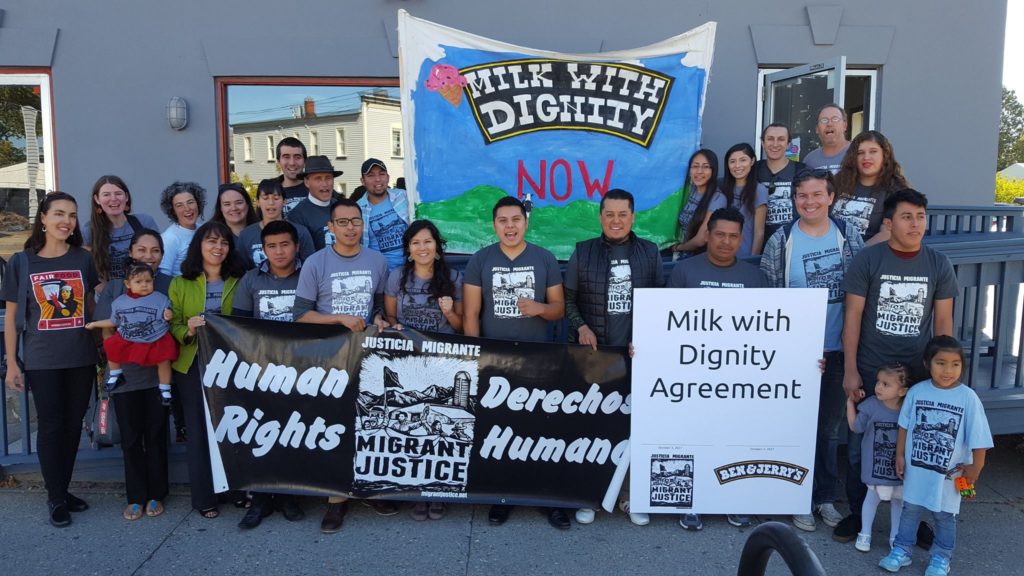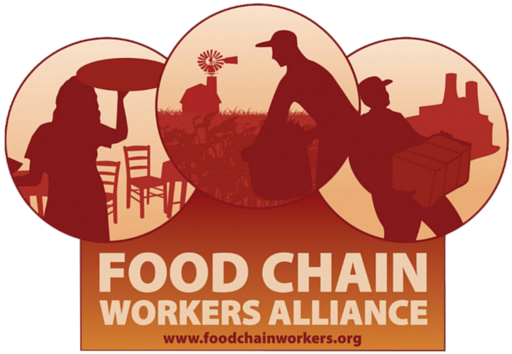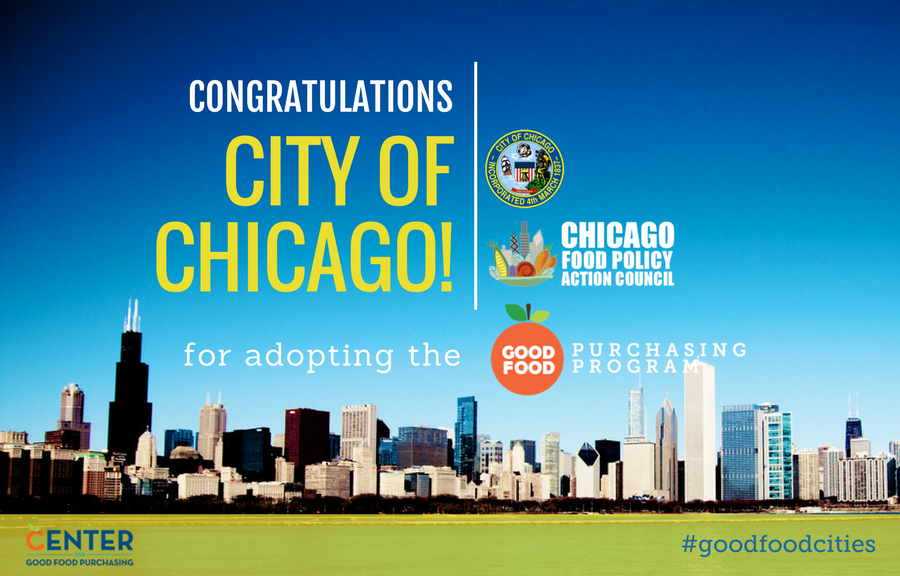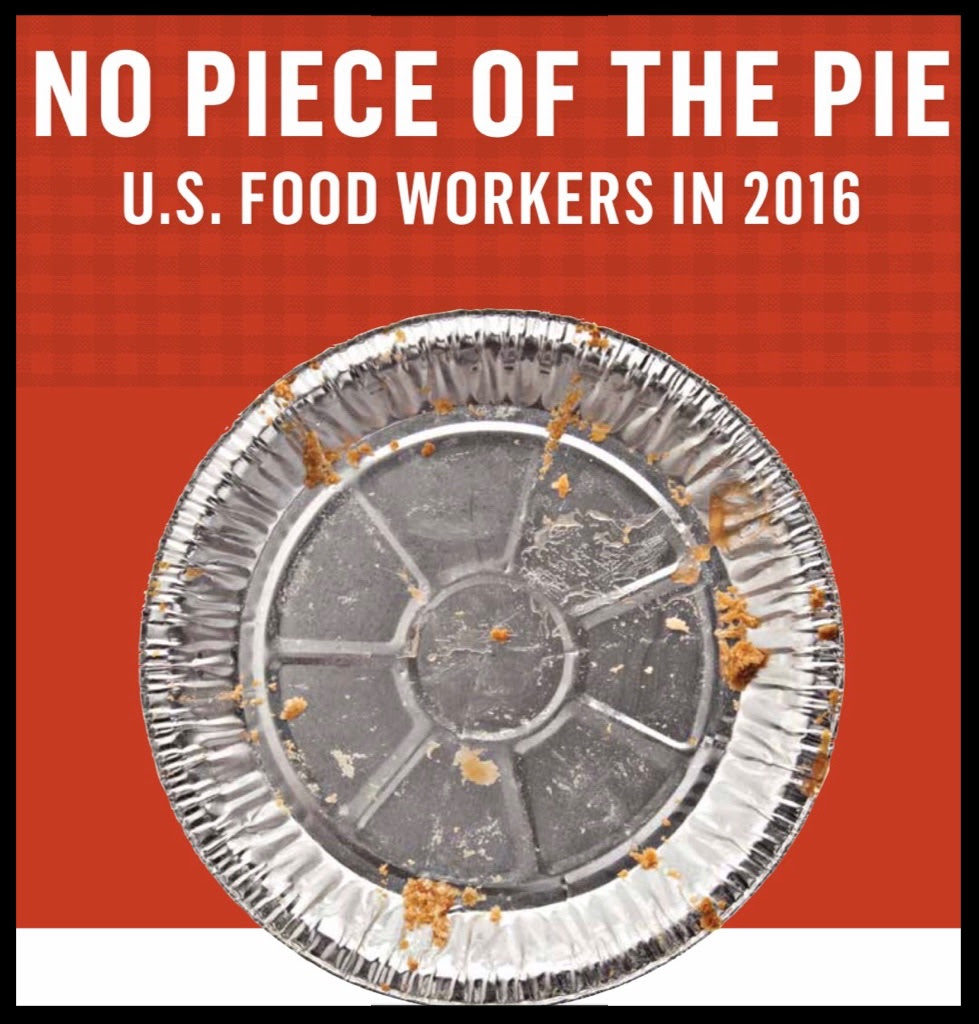
B&J’s is first company to join “Milk with Dignity” supply chain program
From our member group Migrant Justice:
After years of negotiations and public campaigning, Migrant Justice and Ben & Jerry’s have reached an historic supply chain agreement to advance worker’s rights by implementing the Milk with Dignity Program in the company’s northeast dairy supply chain. The legally-binding contract is the first of its kind in the dairy industry.
Developed by Vermont dairy workers, Milk with Dignity is modeled after the internationally-renowned Fair Food Program that has transformed the Florida tomato industry. The program provides dairy brands such as Ben & Jerry’s with the ability to make transformational changes in their supply chains, improving labor and housing conditions through a verifiable and worker-led model.
By joining the program, Ben & Jerry’s will pay participating farms a premium and require that farms uphold a farmworker-authored code of conduct to ensure fair and dignified work and housing conditions. The premium provides workers with a bonus on each paycheck and serves to offset farmer’s costs of compliance with the Milk with Dignity Code of Conduct. The farmworker-authored code sets new industry standards for wages, scheduling, health and safety, housing, and other workplace conditions. The program will be monitored and enforced by a newly created independent third party called the Milk with Dignity Standards Council (MDSC).





